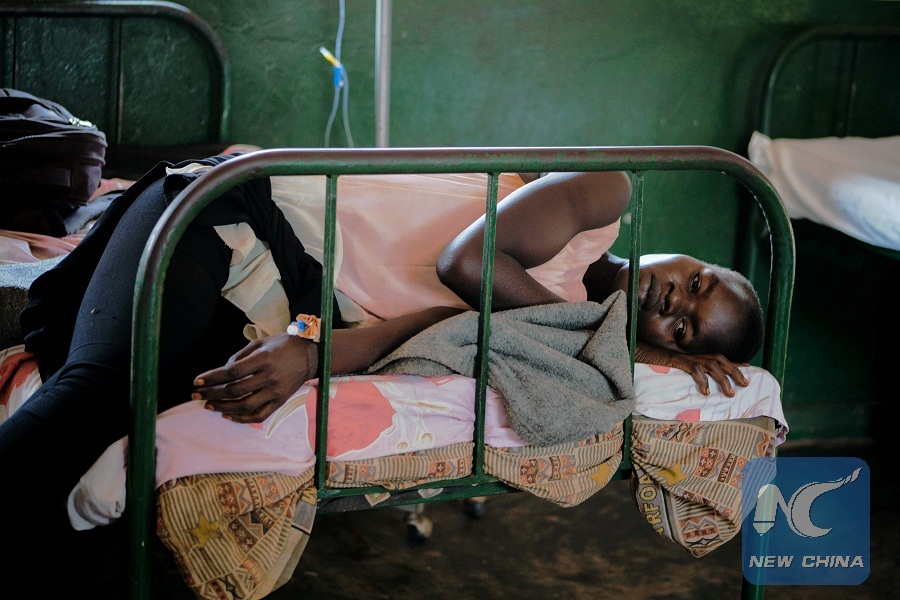
A patient rests on a bed after being discharged from the malaria ward at Panyadoli Health Center III in Kiryandongo refugee settlement, northwestern Uganda, on April 11, 2017. (AFP PHOTO/Esther MABABZI)
GENEVA, April 24 (Xinhua) -- The world's first and only malaria vaccine was launched in the African country of Malawi on Tuesday, as part of a landmark pilot program hoping to protect, in particular, hundreds of thousands of children under five against one of the world's leading killers, according to the World Health Organization (WHO).
Thirty years in the making, RTS,S is the first and to date the only vaccine that has demonstrated it can significantly reduce malaria in children, according to the WHO.
In clinical trials, the vaccine was found to prevent about four in ten malaria cases, including three in ten cases of life-threatening severe malaria.
Malawi is the first of three in Africa where RTS,S is to be made available to children up to two years of age. Ghana and Kenya will introduce the vaccine in the coming weeks.
According to WHO Director-General Dr. Tedros Adhanom Ghebreyesus, despite tremendous gains from bed nets and other measures to control malaria in the last 15 years, progress has stalled and even reversed in some areas. The vaccine may serve as a new solution that will potentially save tens of thousands of children's lives.
While celebrating the launch of the vaccine, the WHO also reminds that it's a complementary malaria control tool added to the core package of WHO-recommended measures for malaria prevention, including the routine use of insecticide-treated bed nets, indoor spraying with insecticides, and the timely use of malaria testing and treatment.
An outcome of public-private partnership under the WHO's coordination, the pilot vaccine program is designed to generate evidence and experience to inform WHO policy recommendations on the broader use of the vaccine.
It will look at reductions in child deaths; vaccine uptake, including whether parents bring their children on time for the four required doses; and vaccine safety in the context of routine use.
Malaria remains one of the world's leading killers, claiming the life of one child every two minutes, according to WHO statistics. Most of these deaths are in Africa, where more than 250,000 children die from the disease every year.
Children under five are at greatest risk of its life-threatening complications. Worldwide, malaria kills 435,000 people a year, most of them children.

